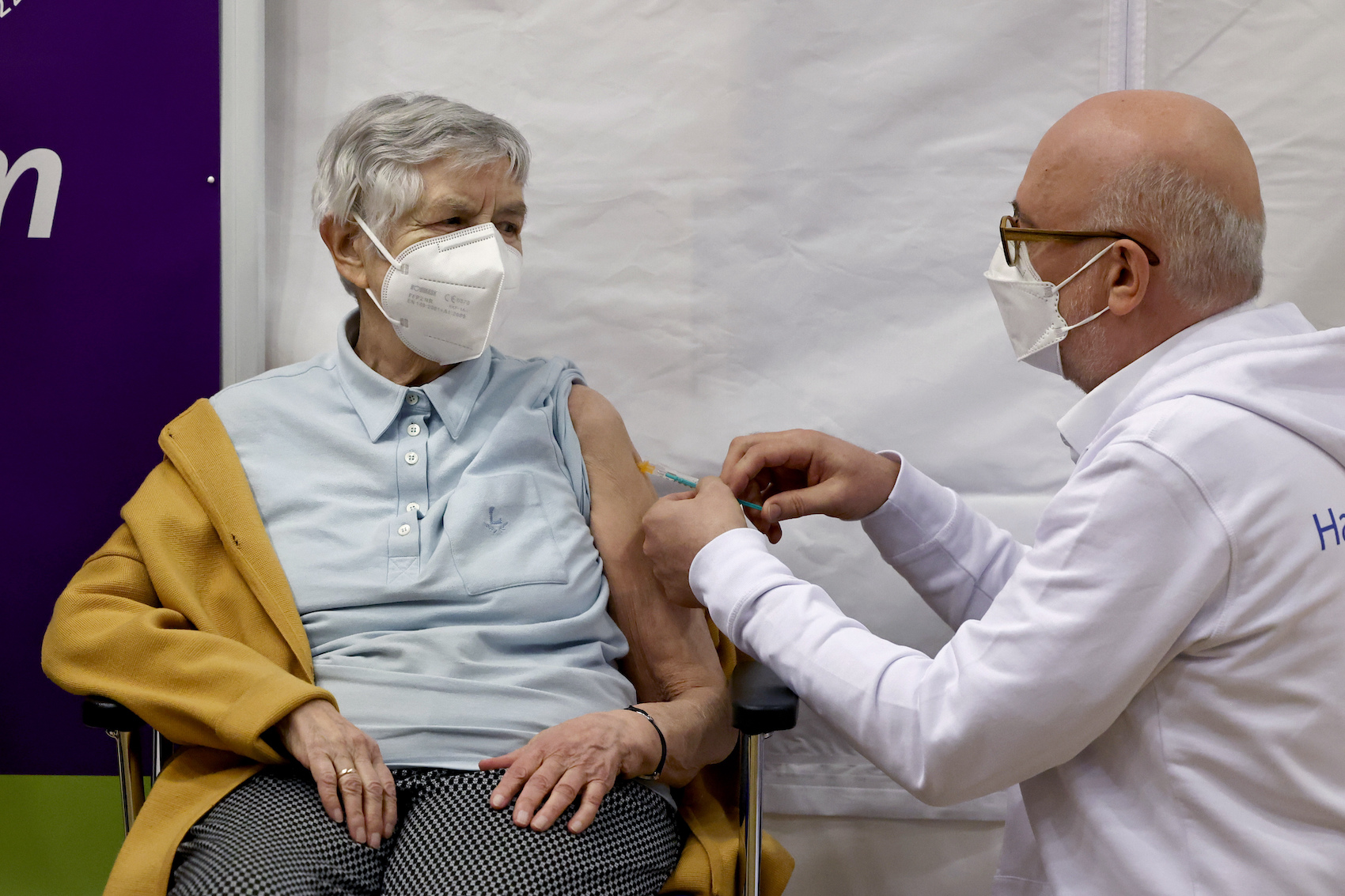In recent weeks, the approval and rollout of several vaccines has raised hopes of mitigating and eventually overcoming the global COVID-19 pandemic, which has cost the lives of nearly 2 million people and changed the world in a profound way throughout the past year.
The rapid development of vaccines designed to protect against the virus has been hailed as “astonishing” by public health experts such as Dr. Barry R. Bloom, former dean of the Harvard T.H. Chan School of Public Health.
The COVID-19 pandemic “triggered the fastest and most wide-reaching response to a global health emergency in human history,” said World Health Organization Director General Tedros Adhanom Ghebreyesus. “Vaccines offer great hope to turn the tide of the pandemic. We must ensure that all people at risk everywhere, not just in countries who can afford vaccines, are immunized.”
At the forefront of what could become the greatest scientific success story of the 21st century are the founders of the German biotechnology company BioNTech, Özlem Türeci and Uğur Şahin. In partnership with the American pharmaceutical company Pfizer, the married couple led the research effort that produced the first COVID-19 vaccine used in the United States and the European Union.
This remarkable feat wasn’t the first time that Türeci and Şahin defied the odds. Long before their quest to defeat COVID-19 turned them into an internationally recognized “dream team” of science, the two trailblazers overcame prejudice and discrimination to build successful careers in the biotechnology sector.
The now-billionaires both grew up in the Turkish immigrant community that primarily occupies the bottom rungs of the socioeconomic spectrum in Germany. The German census does not gather data on ethnicity, however according to estimates, somewhere between 4–7 million people with Turkish roots, or 5–9% of the population, live in Germany. Many of them, including Türeci and Şahin, are the children of guest workers who immigrated to West Germany between 1961–73 as part of a bilateral recruitment agreement with Turkey.
These workers often mitigated labor shortages during the “economic miracle” that spurred Germany’s economic recovery after World War II, yet negative stereotypes about the country’s largest ethnic minority are rampant.
Turkish-German children suffer from discrimination in primary school grading and adults face more difficult prospects in the job market. In the political arena, outright racist mockery by far-right politicians is accompanied by more mainstream debates in the political center about the “loyalty” of people with dual citizenship and the success or failure of immigrants’ “integration” into German culture.
“In Germany, where you come from still plays a major role in determining where you’re going to go,” said Cem Özdemir, the first child of a guest worker elected to the German parliament in 1994, according to The New York Times. “I know from my own experiences that with a Turkish name, you will always have to do better, be watched closer.”
In addition to everyday discrimination, Turkish Germans have also been targeted by neo-Nazi terrorists. Between 2000–2007, an underground terrorist cell committed a series of murders, primarily of ethnically Turkish small business owners. Severe investigative failures by police and intelligence agencies delayed prosecution of the killings until 2013. Amnesty International cited these failures as evidence for institutional racism in German law enforcement.
In the wake of these hate crimes and the broad landscape of discrimination, Türeci and Şahin’s success is “balm for the battered Turkish soul,” according to columnist Hatice Akyün. “Many people with Turkish roots not only feel recognition for the work of the scientists, they also feel pride that two Turkish names are now associated with the vaccine.”
“We are incredibly proud to have such researchers in our country,” German Chancellor Angela Merkel said in a meeting with Türeci and Şahin. “When we see how many people are currently dying from the coronavirus, then we know how many lives this can save.”
Volkan Agar, a journalist for another German newspaper, wrote he, too, felt “pride” while also criticizing media coverage of the scientists’ feat. Many German outlets had portrayed Türeci and Şahin as poster child migrants and examples of successful integration.
The coverage, according to Agar, “showed that the recognition of these people in Germany is tied to conditions: only a migrant who accomplishes a lot is a good migrant.” He cautioned that “as long as we are not primarily happy about the good deed itself, but happy that it was accomplished by people from migrant and worker families, we have a lot of work to do in this country.”
